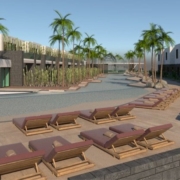Yesterday saw the 50th anniversary of Morocco’s “Green March” on Western Sahara, which prompted Spanish withdrawal from its previous colony, launching a dispute that lasts until today.
The march resulted from Spain’s decision to leave its former colonies, with the Sahrawi people of Western Sahara keen to declare an independent state. To prevent this, King Hassan II ordered 350,000 Moroccans to advance on the territory, in what was described as a “strategic mass demonstration.”
Spain withdrew shortly afterwards, leaving the Sahrawis alone. This resulted in the formation of the Polisario Front, which waged a 16-year long armed conflict with Morocco that ended with a ceasefire in 1991.
The Canaries has always had a close relationship to Western Sahara. Several Canarians lived and worked in the territory when it was a Spanish colony, and most of those islanders, along with many Spaniards, fled to Las Palmas when the Green March began. The Canaries also have a significant Sahrawi community, as many took advantage of the right to claim Spanish citizenship as ex-colonial subjects. Both Morocco and the Sahrawis currently both have consulates and delegates in the Canaries.
Spanish support for Sahrawi independence has been traditionally cross-party, with the left supporting self-determination and the right motivated by loyalty towards an ex-colony and distrust of Morocco. However, that support has always been particularly strong on the Canaries.
Two years ago, Spanish PM Pedro Sánchez broke with tradition and infuriated many in his own party, as well as all opposition parties, by expressing support for Moroccan sovereignty over the territory. A US proposal for a similar arrangement was also approved by the UN last week, making the hopes of an independent Western Sahara more remote than ever before.











Leave a Reply
Want to join the discussion?Feel free to contribute!